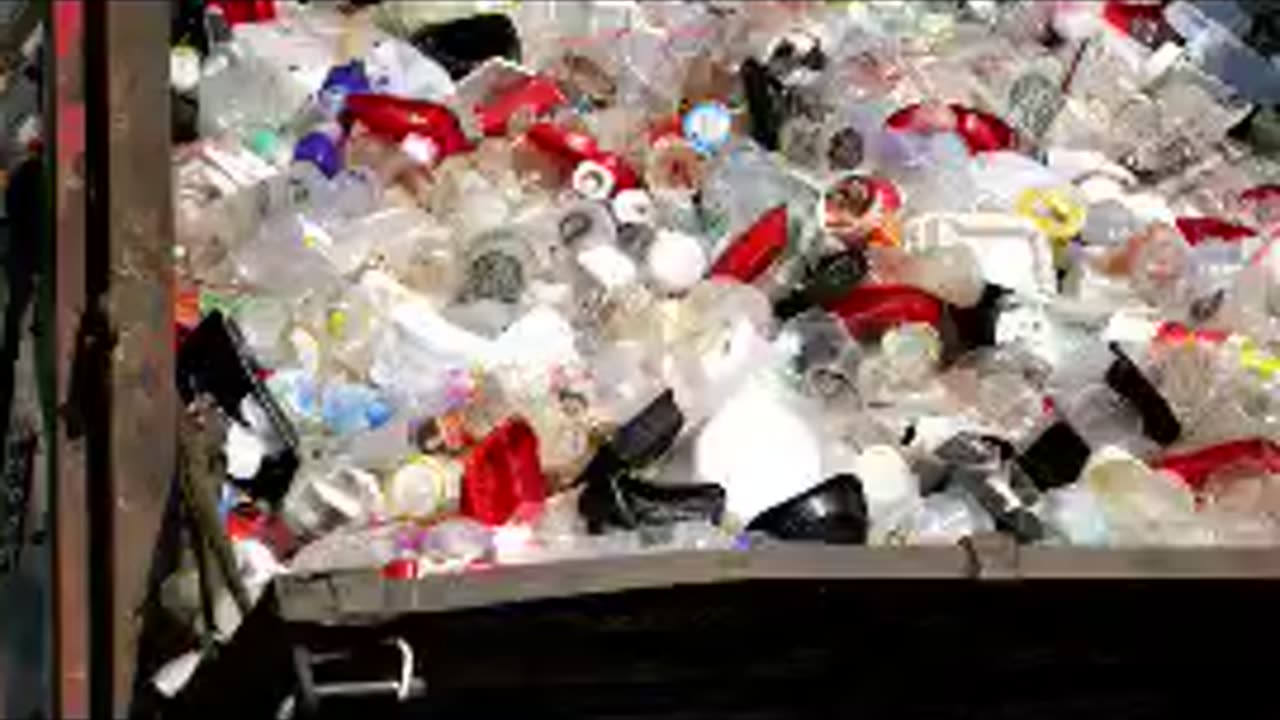Premium Only Content

One & Done No More: The Case for a Global Single-Use Plastic Ban
#BanSingleUsePlastics #PlasticFreeFuture #ZeroWasteLifestyle #EcoRevolution #GlobalPlasticBan #SustainableLiving
Single-use plastics, items designed for a single use before disposal, like bags, straws, and packaging, have become ubiquitous in modern life. Their convenience masks a mounting environmental crisis: plastics fragment into microplastics, choke wildlife, and infiltrate food and water chains. With production soaring and waste management lagging, the debate over a global ban has intensified. Opponents argue that developing economies lack affordable alternatives and risk economic disruption, while proponents insist the environmental stakes demand unified action.
Global plastic production topped 436 million metric tons in 2023, yet roughly 75 percent of all plastic ever made has become waste, much of which leaks into oceans and ecosystems . This pollution harms marine biodiversity, disrupts food systems, and poses human health risks through microplastic ingestion. Single-use items, often non-recyclable or improperly disposed, account for a significant share of this leakage. Stricter bans have already driven measurable drops in plastic bag use in countries that enforced them rigorously.
An immediate, comprehensive ban on problematic single-use plastics could yield economic benefits far exceeding short-term costs. A recent study projects savings between $4.7 trillion and $8 trillion globally by 2040, through reduced waste management burdens, lower greenhouse gas emissions, and fewer social and environmental cleanup costs. These figures assume aggressive policy implementation, favoring immediate prohibitions of items like expanded polystyrene packaging and cotton buds. While businesses may face transition costs, the long-term payoff in public health and ecosystem services is substantial.
Developing economies face distinct hurdles: limited waste-collection infrastructure, dependence on low-cost plastic imports, and uneven access to sustainable alternatives. Trade data show that tariffs on fossil-fuel–based plastics have dropped to an average of 7.2 percent, whereas natural substitutes like paper and bamboo face rates over 14 percent, discouraging local production of greener materials. Without technical assistance, tariff reform, and finance for alternative manufacturing, a global ban could disproportionately burden small vendors and consumers in poorer regions.
A phased global ban, coupled with targeted support for developing countries, offers the most equitable path forward. International financing mechanisms can underwrite infrastructure upgrades for recycling and composting facilities. Tariff adjustments and subsidies for biodegradable materials would level the playing field. A coordinated multilateral treaty, mirroring successes like the Montreal Protocol, could set clear timelines, fund research into innovative plastics alternatives, and ensure enforcement mechanisms adapt to local capacities.
-
 LIVE
LIVE
SpartakusLIVE
5 hours agoThe Most INSANE Snipes EVER || Solo to Duos w/ StevieT - PUBG or Mordor Later?!
304 watching -
 1:11:40
1:11:40
Flyover Conservatives
13 hours agoThe Truth About Israel & End Times Nobody Wants to Say - Phil Hotsenpiller | FOC Show
10K5 -
 LIVE
LIVE
GritsGG
2 hours agoSweaty Ranked Grind! Most Wins in WORLD! 3600+!
115 watching -
![[ Tekken Tuesday ] TNS Tekken Tournament Watch Party](https://1a-1791.com/video/fww1/5b/s8/1/4/a/C/g/4aCgz.0kob-small--Tekken-Tuesday-TNS-Watch-P.jpg) LIVE
LIVE
CHiLi XDD
2 hours ago[ Tekken Tuesday ] TNS Tekken Tournament Watch Party
119 watching -
 1:53:04
1:53:04
Glenn Greenwald
6 hours agoIsrael Bombs Qatar and Trump Reacts; The Hoax to Blame Russia for Jamming EU President's Plane GPS; Mamdani Soars in Polls as he Tries to Moderate on Israel | SYSTEM UPDATE #511
86.2K56 -
 2:47:57
2:47:57
Barry Cunningham
5 hours agoLIVE: PRESIDENT TRUMP ANNOUNCEMENT | IRYNA ZARUTSKA DESERVES IMMEDIATE JUSTICE! NO WAITING!
52K54 -
 LIVE
LIVE
cosmicvandenim
13 hours agoCOSMIC VAN DENIM | Precision Tuning | WARZONE
125 watching -
 LIVE
LIVE
Anthony Rogers
1 day agoEpisode 382 - Crystal Balls & Comedy Calls
32 watching -
 LIVE
LIVE
LFA TV
16 hours agoLFA TV ALL DAY STREAM - TUESDAY 9/9/25
571 watching -
 LIVE
LIVE
BubbaSZN
3 hours ago🔴 LIVE - 1 WEEK UNTIL RELEASE (SKATE.)
12 watching